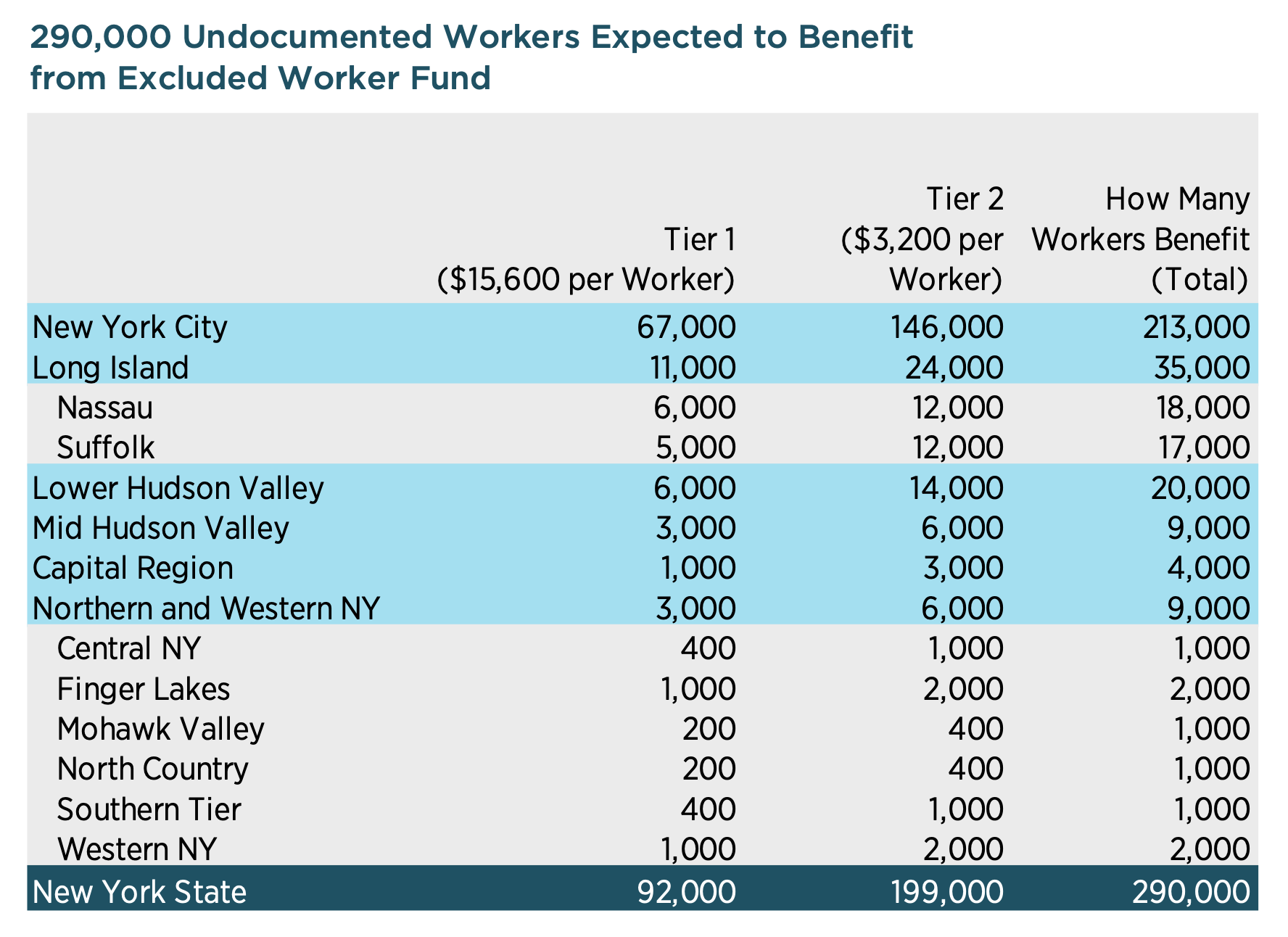The COVID-19 pandemic has brought increased recognition of immigrants’ critical contributions to our communities and economies. Our nation’s immigration policy and safety net programs, however, still do not reflect this reality. Undocumented immigrants are both disproportionately represented among industries experiencing job loss due to the pandemic and essential workers who risk their lives to perform critical work, including caring for our loved ones, keeping our stores stocked and running, and growing, preparing, and delivering our food. While most people facing financial hardship can benefit from government aid, including the federal stimulus payments and unemployment insurance, discriminatory eligibility criteria bar many immigrants from the same access to financial assistance.
The good news is that states do not have to wait for the federal government to act. This week, New York took a big step toward expanding access to critical relief by passing a state budget that includes a $2.1 billion fund for undocumented workers who were excluded from pandemic aid. New York’s Excluded Workers Fund — which is expected to benefit an estimated 290,000 workers and provide substantial economic boosts across the state — creates two levels of aid. Tier 1 provides $15,600 (the equivalent of $300 per week for one year) for undocumented workers who are able to meet strict standards of proof of eligibility. While this amount falls short of what other jobless workers received in unemployment benefits, it will make a substantial difference for families facing financial hardship. The second tier provides $3,200 per worker, matching the amount of three rounds of economic impact payments that many Americans received.
 Source: Fiscal Policy Institute Analysis of Excluded Worker Fund (2021)
Source: Fiscal Policy Institute Analysis of Excluded Worker Fund (2021)
Even though New Jersey has one of the largest shares of immigrants in the country, the state’s investment in its immigrant communities pales in comparison to New York and many other states. While only 14 percent of the total U.S. population is born outside of the United States, nearly one in four (23 percent) New Jersey residents is an immigrant. Following national trends, immigrants in New Jersey have higher rates of labor force participation than non-immigrants. In addition, immigrants have lower median earnings than U.S.-born workers in New Jersey, and this disparity is particularly stark for non-citizen immigrants. Undocumented immigrants make up 6.5 percent of New Jersey’s workforce — an even larger share than in New York’s workforce (4.9 percent). Moreover, the majority (209,400) of undocumented workers in New Jersey’s workforce (294,000) are essential workers whose labor was critical during the pandemic.
New Jersey lawmakers have yet to establish a program that comes close to addressing the scale of the current crisis, despite the outsized contributions of immigrants to New Jersey’s communities and economy, and the disproportionate health and financial impacts of the COVID-19 pandemic on these same communities. While New York is the most recent and largest example, it is not the only state to take action to support its immigrant communities. Several other states, including Oregon, Washington, New Mexico, Colorado, Illinois, and California, have also created programs to support workers and families excluded from relief. New Jersey lawmakers should follow their lead and support our immigrant communities.

